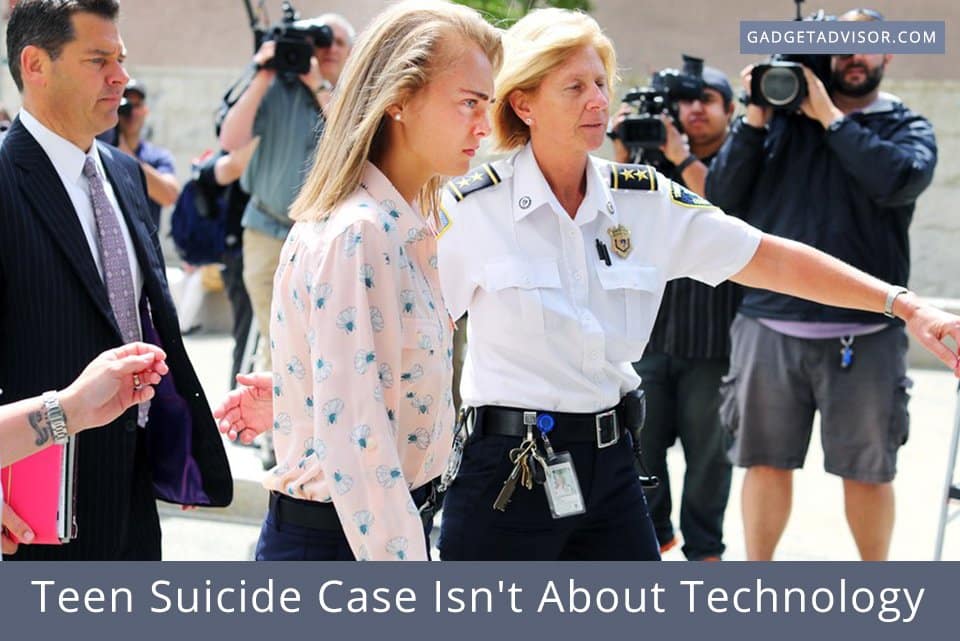In July of 2017, then 17 year old Michelle Carter sent hundreds of text messages to her boyfriend, Conrad Roy III, urging him to commit suicide. When Roy, who had connected a hose to his truck’s exhaust pipe and slipped it in the cab’s window in a Kmart parking lot, stepped out of the truck having felt the early effects of the poisonous gas, Carter went as far as instructing him to get back in. He did, and he died. Texting a friend right after the fact, Carter was quoted as saying: “I helped ease him into it and told him it was okay, I was talking to him on the phone when he did it … I could have easily stopped him or called the police but I didn’t.”
Technology allowed Carter (and countless others throughout the years) to be an active participant in this tragedy without her being even near the scene where Roy took his last breath. This, argued her attorneys, means she is not guilty of anything. Her texts and any phone conversation she might have had with Roy all fall under the First Amendment. In their opinion, their client should be protected by free speech. After all, her boyfriend took his own life, and every action leading to his death was performed by him and him only.
But Danielle Citron, who authored the book Hate Crimes in Cyberspace, disagrees. She argues that there are 21 crimes directly associated with speech, including conspiracy, extortion, threatening and aiding and abetting. And this is where Carter’s phone conversation with a friend becomes more than just words. She explicitly admits that she helped Roy commit suicide instead of helping him not to, or contacting someone who might have been able to talk him out of it. It almost sounds like she thinks she was justified in encouraging him to take his life, doing him a service by soothing him and reassuring him that “it was ok”.
This case is about speech and crime, not technology. And while the initial reaction is to blame technology and crusade for harsher laws on use of technology, it seems that in this case the judge is looking past the means and into what really matters: the crime.
Carter was found guilty of involuntary manslaughter and is scheduled to be sentenced on August third. She could be facing up to 20 years in prison.

